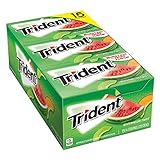All Categories
The World is a Carpet: Four Seasons in an Afghan Village
Share Tweet
*Price and Stocks may change without prior notice
*Packaging of actual item may differ from photo shown
- Electrical items MAY be 110 volts.
- 7 Day Return Policy
- All products are genuine and original








About The World Is A Carpet: Four Seasons In An Afghan
Product Description An unforgettable portrait of a place and a people shaped by centuries of art, trade, and war.In the middle of the salt-frosted Afghan desert, in a village so remote that Google can’t find it, a woman squats on top of a loom, making flowers bloom in the thousand threads she knots by hand. Here, where heroin is cheaper than rice, every day is a fast day. B-52s pass overhead—a sign of America’s omnipotence or its vulnerability, the villagers are unsure. They know, though, that the earth is flat—like a carpet. Anna Badkhen first traveled to this country in 2001, as a war correspondent. She has returned many times since, drawn by a land that geography has made a perpetual battleground, and by a people who sustain an exquisite tradition there. Through the four seasons in which a new carpet is woven by the women and children of Oqa, she immortalizes their way of life much as the carpet does—from the petal half-finished where a hungry infant needs care to the interruptions when the women trade sex jokes or go fill in for wedding musicians scared away by the Taliban. As Badkhen follows the carpet out into the world beyond, she leaves the reader with an indelible portrait of fates woven by centuries of art, war, and an ancient trade that ultimately binds the invaded to the invader. From Publishers Weekly Starred Review. The trials and tribulations desperately poor Oqa, a hamlet in northern Afghanistan so remote that regional officials don't even know it exists, comes to life through the story of Thawra, a carpet weaver, and her family. Badkhen, a Russian-born war correspondent, charts the woman's work over a year of weddings, childbirth, Ramadan, and winter snowstorms. Amid the tedium and grinding poverty—made bearable by opium for the young and old alike—the local Turkoman women have over the centuries earned the distinction of producing some of the finest carpets in the world. It's an existence that Westerners can scarcely comprehend, Thawra's family surviving on less than a dollar a day, earned for an exquisite piece of craftsmanship that will command thousands in the US. Badkhen gains astonishing access to male-only gatherings, earning their lasting respect, and ably documents the infinitesimal though significant influence that Thawra has as breadwinner in this patriarchal society. More travelogue than reportage, her prose is rich and unhurried, evoking the harshness of the desolate landscape. Oqa's isolation means Osama bin Laden may be unknown, but the Taliban is not; their presence an inescapable fact of life, one that propels Badkhen's story to a simple yet chilling dénouement. (June) From Booklist *Starred Review* Journalist Badkhen traveled to the northern Afghan village of Oqa (“so remote that Google can’t find it”) and immersed herself in the villagers’ lives over four seasons as she watched Turkoman women weave one of their legendary rugs. In the sparest of language, she tells a heartbreakingly familiar story: the village is suffering its second year of drought; hunger is common; addiction to opium, used to mask hunger pangs, begins at birth; and war is simply another day of life. The carpet is a work of art, the family’s financial salvation, and the hallmark of a woman’s value. Badkhen tracks the carpet’s travels around the world to a place the people of Oqa can scarcely imagine, noting the history of the lands it crosses and the conflicts that have always raged. Badkhen makes friends and shares their stories, drawing readers into this small village where the dream of wealth is hope for a life without suffering. The irony is that, as their carpets garner great sums, money never reaches the place where they are created or those who need the money so desperately. A beautifully written book of eternal heartbreak. --Colleen Mondor About the Author Anna Badkhen has won awards for her reporting from the Middle East, Central Asia, East Africa, and her native Russia and the Caucasus. Her writing



























